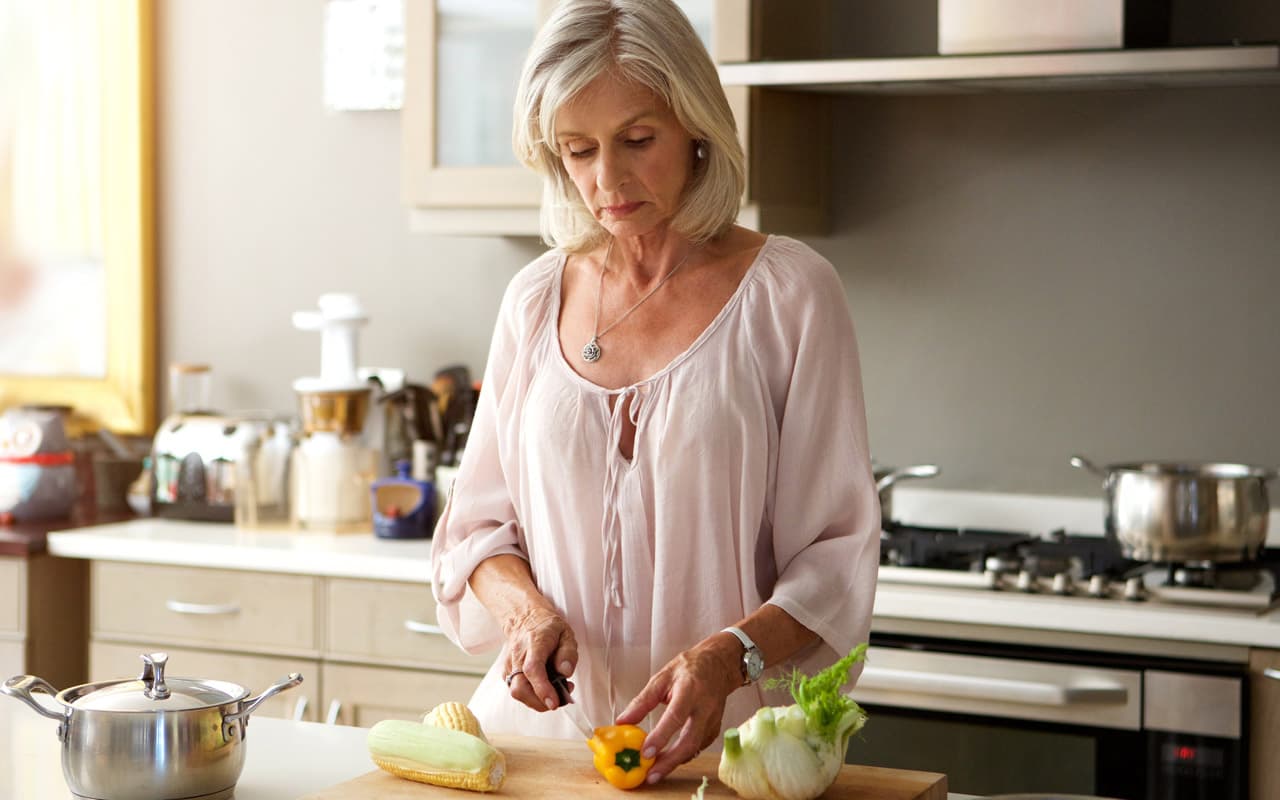April is Parkinson's Awareness Month. The event enhances the public's understanding of Parkinson's disease and educates patients and their families about available resources and breakthroughs in treatment. If you or a loved one was recently diagnosed with Parkinson's, you probably have lots of questions.
One important but often overlooked aspect of a person's well-being is their diet and nutrition. In this article, we discuss foods that can ease the symptoms of Parkinson's disease, optimize medications, and improve the quality of life.
Why are diet and nutrition important for people with Parkinson's disease?
Parkinson's disease affects the nerve cells in a part of the brain called the basal ganglia. These cells produce dopamine, a chemical that helps control muscle movement.
As the nerve cells stop working and die, the risk of other health problems, like high blood pressure or an irregular heartbeat increase. There's no way to stop Parkinson's progression, but eating a balanced diet can help you maintain your health.
Is there a specific diet that people with Parkinson's should eat?
No two people with Parkinson's disease have the same nutritional needs, but there are some general guidelines to follow.
"Maintaining a balanced diet with sufficient calories and nutrients is important to help prevent symptoms of Parkinson's, like unintentional weight loss, constipation, dysphagia (difficulty swallowing), and cognitive impairment," said Molly Robinson, a registered dietician specializing in senior nutrition, who supports caregivers with mealtime strategies. "A focus on adequate calories, fiber, and neuroprotective foods can help maintain quality of life and manage these symptoms."
Robinson continued, "foods shown to support brain health and overall wellness, include leafy greens, other colorful vegetables, and blueberries, raspberries, and blackberries." Other foods that may enhance brain function include whole grains, nuts, beans, and fish.
Are there foods that people with Parkinson's should avoid?
If you or a loved one has Parkinson's disease, there are certain foods to avoid. Since everyone's nutritional needs vary, experts recommend focusing on three areas:
1) Protein and drug interactions. If you take levodopa, eating protein may affect your body's ability to absorb it. "While eating sufficient protein remains important, individuals with Parkinson's disease should be strategic with timing to avoid interactions with certain medications," said Robinson. "For example, concentrating protein at the dinner meal can help ensure protein needs are met for the day.
2) Cut back on fat. "Limiting foods high in saturated fats and trans fats is recommended as part of a balanced diet. These include dairy products, like butter and cheese, red meat, fried foods, and desserts," Robinson said.
3) Avoid foods that are difficult to chew and swallow. As Parkinson's progresses, many patients experience dysphagia. "Soft foods, such as mashed potatoes, cooked vegetables, and tender chopped meats are better tolerated than solid or crunchy foods that require more chewing," said Robinson.
What can a family caregiver do to ensure a loved one gets adequate nutrition and necessary medication?
Many of the medications that treat Parkinson's effect the appetite. This side effect can make meal and snack times challenging, but there are strategies that can make things easier, including:
1) Stick to a routine. "Keeping a daily routine for meals and snacks is important," said Robinson. "Some people may prefer to eat three traditional meals over the course of the day, while others may prefer to have smaller snack-size meals every couple of hours."
2) Use high-calorie ingredients. "Packing calories into a smaller amount of food could help meet nutrition needs when eating full-size meals isn't possible due to poor appetite," said Robinson.
3) Consider liquid nutrition. "Drinkable meals, like a smoothie or milkshake, are often better accepted and preferred when a person is experiencing poor appetite," Robinson said. The same can be said for people who have dysphagia.
How can caregivers help a loved one transition to a new diet?
Committing to a healthy diet is a lot of hard work, but there are ways to make the process easier. "Start with small changes to nutrition and diet," said Robinson. "Implementing one to two small changes per week will allow time for both the caregiver and the person living with Parkinson's disease to adjust."
It can also help to imagine or "visualize" the long-term benefits. For example, you could create a vision board that highlights some of the benefits provided by nutrition, like reduced constipation, improved levodopa uptake, and more energy.
How can a family caregiver help someone with dysphagia?
More than 80% of people with Parkinson's have difficulty swallowing. Symptoms to watch out for include coughing or clearing the throat during or after meals, watery eyes, and removing food from the mouth after chewing.
"If swallowing trouble is suspected, seek a referral for a speech-language pathologist (SLP) or speech therapist," said Robinson. "They can evaluate dysphagia and provide strategies that work best for safety while eating and drinking."
Even if your loved one's symptoms are mild, it's important to have an assessment. "Swallowing difficulty can lead to poor intake, malnutrition, and aspiration," Robinson said.
By making changes to your loved one's diet, you can better manage uncomfortable symptoms and help your care recipient maintain an active and independent lifestyle.
If you have questions about any of the Parkinson's-related items we carry, like thick water, drinks & shakes, or incontinence products, contact our friendly Care Specialists any time by calling (800) 696-CARE or send an email to support@carewell.com.



